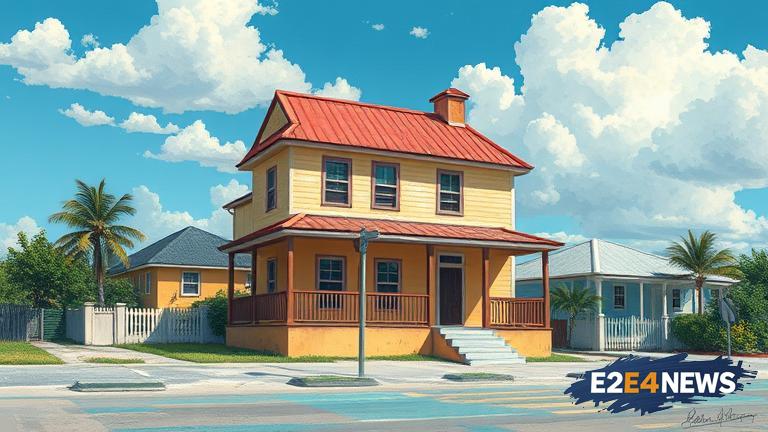The Bahamas, known for its crystal-clear waters and vibrant culture, is grappling with a housing affordability crisis that threatens to undermine the very fabric of its society. Bahamians are being priced out of homeownership at an alarming rate, with the cost of purchasing a home increasing exponentially over the past few years. This trend is not only affecting low-income families but also middle-class citizens who are finding it challenging to afford a decent home. The situation is further exacerbated by the lack of affordable housing options, with many developers focusing on building luxury homes that cater to foreign investors. As a result, many Bahamians are being forced to rent, which can be a significant burden on their finances. The rental market is also becoming increasingly unaffordable, with prices rising sharply in recent years. This has led to a situation where many people are struggling to make ends meet, with some even being forced to live in overcrowded or substandard conditions. The government has been criticized for not doing enough to address the issue, with some arguing that it has been too slow to implement policies that could help make housing more affordable. One of the main challenges facing the government is the need to balance the demand for housing with the need to protect the environment and preserve the country’s natural beauty. However, this cannot be used as an excuse for inaction, as the current situation is unsustainable and threatens to have long-term consequences for the country’s economy and society. The Bahamas is not alone in facing this challenge, as many countries around the world are struggling to address the issue of housing affordability. However, the situation in the Bahamas is particularly acute, given the country’s small size and limited land availability. To address this issue, the government needs to take a comprehensive approach that includes increasing the supply of affordable housing, implementing policies to control prices, and providing support to those who are struggling to afford a home. This could include initiatives such as subsidies for first-time homebuyers, rent control measures, and programs to help low-income families access affordable housing. The private sector also has a role to play, with developers and investors needing to prioritize the construction of affordable housing units. Additionally, there is a need for greater transparency and accountability in the housing market, with measures to prevent price gouging and ensure that buyers are not being taken advantage of. The situation is complex and multifaceted, requiring a coordinated effort from all stakeholders to address. The consequences of inaction will be severe, with the potential for social unrest, economic instability, and a decline in the overall quality of life for Bahamians. It is imperative that the government and other stakeholders take immediate action to address this crisis, before it is too late. The future of the Bahamas depends on it, and the time for action is now. The country’s reputation as a desirable place to live and work is at stake, and the government must take bold steps to ensure that homeownership remains within reach for its citizens. The Bahamas has a unique opportunity to create a more equitable and sustainable housing market, one that prioritizes the needs of its citizens and ensures that everyone has access to a safe and affordable place to call home. By working together, the government, private sector, and civil society can create a brighter future for the Bahamas, one where homeownership is a reality for all, not just a privileged few.
